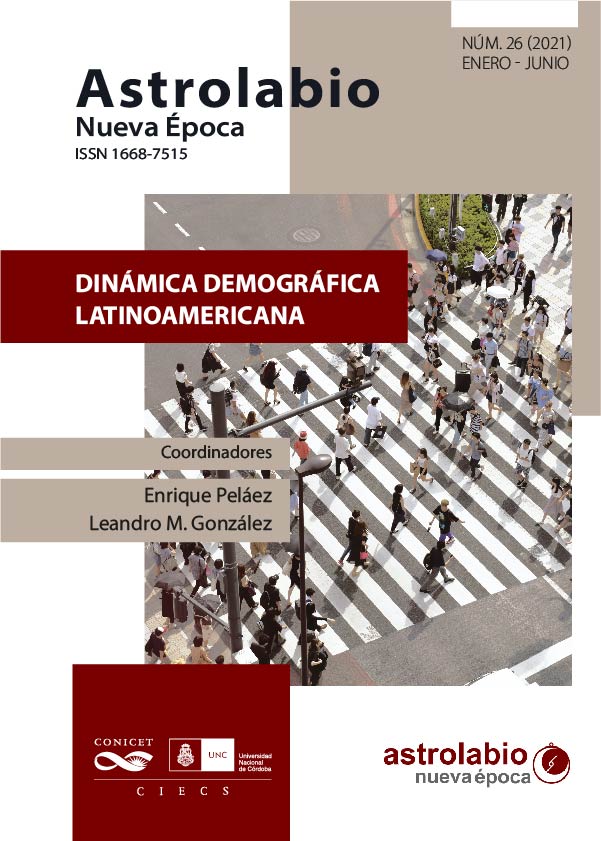Modernization and hybridization in the life and traditional practices of San Felipe del Progreso. The case of midwives and their ancestral knowledge
Main Article Content
Abstract
The present research aims to understand the sociocultural process faced by the traditional midwives of San Felipe del Progreso, in which structures and practices that are different from each other —such as the traditional and modern health systems— meet and allow the emergence of new interpretations, practices and objects in the care of pregnancy, childbirth, and the puerperium.
For this, it is necessary to divide the investigation into different sections. At first, the article delves into the concept of modernity and how it is seen in Latin America; in the same way, the way it manifests itself in Mexico is mentioned, understood as the succession of various modernization processes that have arisen in the economic, social, political and cultural spheres. Once the above is understood, it is possible to discuss the concept of the hybrid, taking up the premise that these modernization processes are established in a space that had different ways of looking at and constructing reality, a vision that is reflected in the health / illness / attention.
In a second moment, the phenomenon is observed in a specific community, namely, San Felipe del Progreso, which accounts, from its context, of the encounter between these two ways of looking at the health-disease-care process, which on the one hand are characterized by “more traditional models of care” (configured from the pre-Hispanic tradition), in communication with modernizing processes. Based on this approach, the present investigation takes up, temporarily, events that influence the configuration of these modernizing processes from 1808 to 2016, but the focus is on observing such an encounter (traditional model and modern model) in the present.
In the third section, the category of hybrid is retaken as an analysis tool or explanation resource. From the fragments of the life histories obtained from the midwives, described in the fourth section, it is possible to recognize the processes of communication and “hybrid” practice used by these medical specialists. In the fifth section, the results of the research are presented, emphasizing the hybrid seen from the training and training of midwives, and the knowledge acquired, as well as the materials and support techniques.
We conclude by generating a series of arguments that allow us to argue why the hybrid can be a means of explanation for the encounter between forms (ancestral and modern) of care for pregnancy, childbirth, and the puerperium, via community midwives.
Downloads
Article Details

This work is licensed under a Creative Commons Attribution-NonCommercial-ShareAlike 4.0 International License.
Astrolabio, Nueva Época está protegida bajo licencia Licencia Creative Commons Atribución-NoComercial-CompartirIgual 4.0 Internacional. La propiedad intelectual de los artículos pertenece a los autores y los derechos de edición y publicación a la revista. Los artículos publicados podrán ser usados libremente para propósitos científicos y académicos, siempre y cuando se realice una correcta citación de los mismos. Cualquier persona física o jurídica que desee reimprimir parte o la totalidad de algún artículo, deberá obtener permiso escrito de los editores de Astrolabio Nueva Época, quien lo otorgará con el consentimiento del autor.
References
AGUIRRE BELTRÁN, Gonzalo. (1987). Medicina y magia: el proceso de aculturación en la estructura colonial. México: Instituto Nacional Indigenista.
ARCHETTI, Eduardo P. (1999). Hibridación, pertenencia y localidad en la construcción de una cocina nacional. En Carlos Altamirano (ed.), La Argentina en el siglo XX, pp. 217-237. Buenos Aires: Ariel y Universidad de Quilmes.
AYUNTAMIENTO DE SAN FELIPE DEL PROGRESO. (2016-2018). Ficha de información general de San Felipe del Progreso. México: Autor.
BHABHA, Home K. (2002). El lugar de la cultura. Buenos Aires: Manantial.
BLANQUEL MORÁN, Mario y HERNÁNDEZ REYES, Lorena. (1999). San Felipe del Progreso: monografía municipal. Toluca, Estado de México: Instituto Mexiquense de Cultura.
BROM, Juan. (1965) “La Edad Moderna”, “La Edad Contemporánea” en Esbozo de Historia Universal. México: Grijalbo.
CHANADY, Amaryll. (1997). La hibridez como significación imaginaria. Recuperado en: http://red.pucp.edu.pe/wp-content/uploads/biblioteca/58.pdf [consulta: octubre de 2016].
CONEVAL (CONSEJO NACIONAL DE EVALUACIÓN DE LA POLÍTICA DE DESARROLLO). (2007). Seguro médico para una nueva generación. Seguro médico siglo XXI. Recuperado en: http://www.coneval.org.mx/Informes/Evaluacion/Ficha_Monitoreo_2012/SALUD/12_S201_FM.pdf [consulta: octubre de 2016].
GARCÍA CANCLINI, Néstor. (2009). Culturas híbridas. Estrategias para entrar y salir de la modernidad. México: De Bolsillo.
GIDDENS, Anthony. (1994). Consecuencias de la modernidad. Madrid: Alianza.
GIDDENS, Anthony. (1995). Modernidad e identidad del yo: el yo y la sociedad en la época contemporánea. Barcelona: Península.
GIROLA, Lidia. (2005). “Tiempo, tradición y modernidad: la necesaria re-semantización de los conceptos”. Sociológica, 20-58, 13-52.
INEGI. (2010). Compendio de Información geográfica Municipal 2010. San Felipe del Progreso. Recuperado en: http://www.inegi.org.mx/ [consulta: octubre de 2016].
INEGI. (2015). Indicadores sociodemográficos por área geográfica. Recuperado en: http://www.inegi.org.mx/ [consulta: diciembre de 2016].
MARTÍNEZ CORTÉS, Fernando y AGUIRRE BELTRÁN, Gonzalo. (1990). Historia general de la Medicina en México. México: UNAM – Academia Nacional de Medicina.
MENÉNDEZ, Eduardo. (1994). “La enfermedad y la curación ¿qué es medicina tradicional?”. Alteridades, 4-7, 71-83. Recuperado en: https://docplayer.es/20609493-La-enfermedad-y-la-curacion-que-es-medicina-tradicional.htm [consulta: octubre de 2016].
OCARANZA, Fernando. (1995). Historia de la Medicina en México. México: Cien de México.
PONS, Agustín Pedro. (1977). De la magia a la medicina. En Enciclopedia médica del hogar, pp. 244-273. Barcelona: Argos.
SÁNCHEZ URIARTE, María del Carmen. (2010). “El Hospital de San Lázaro de la ciudad de México y los leprosos novohispanos durante la segunda mitad del siglo XVIII”. EHN, 42, 81-113. Recuperado en: http://www.revistas.unam.mx/index.php/ehn/article/view/18441 [consulta: octubre de 2016].
SECRETARÍA DE SALUD. (2012). El Convenio General de Colaboración Interinstitucional para la Atención de la Emergencia Obstétrica, un camino hacia la universalización de los servicios de salud. México: Secretaría de Salud.
URIBE GÓMEZ, Mónica y ABRANTES PEGO, Raquel. (2013). Las reformas a la protección social en salud en México: ¿rupturas o continuidades? México: Perfiles Latinoamericanos.
VALLES RUÍZ, Rosa María. (2010). Poder y política: María Esther Zuno y Cecilia Occelli. En Carlos Mejía Reyes y Liliana Zavala Mejía (coords.), Memoria del Quinto Encuentro Nacional sobre Empoderamiento Femenino, pp. 147-164. Pachuca, Hidalgo: Universidad del Estado de Hidalgo.

